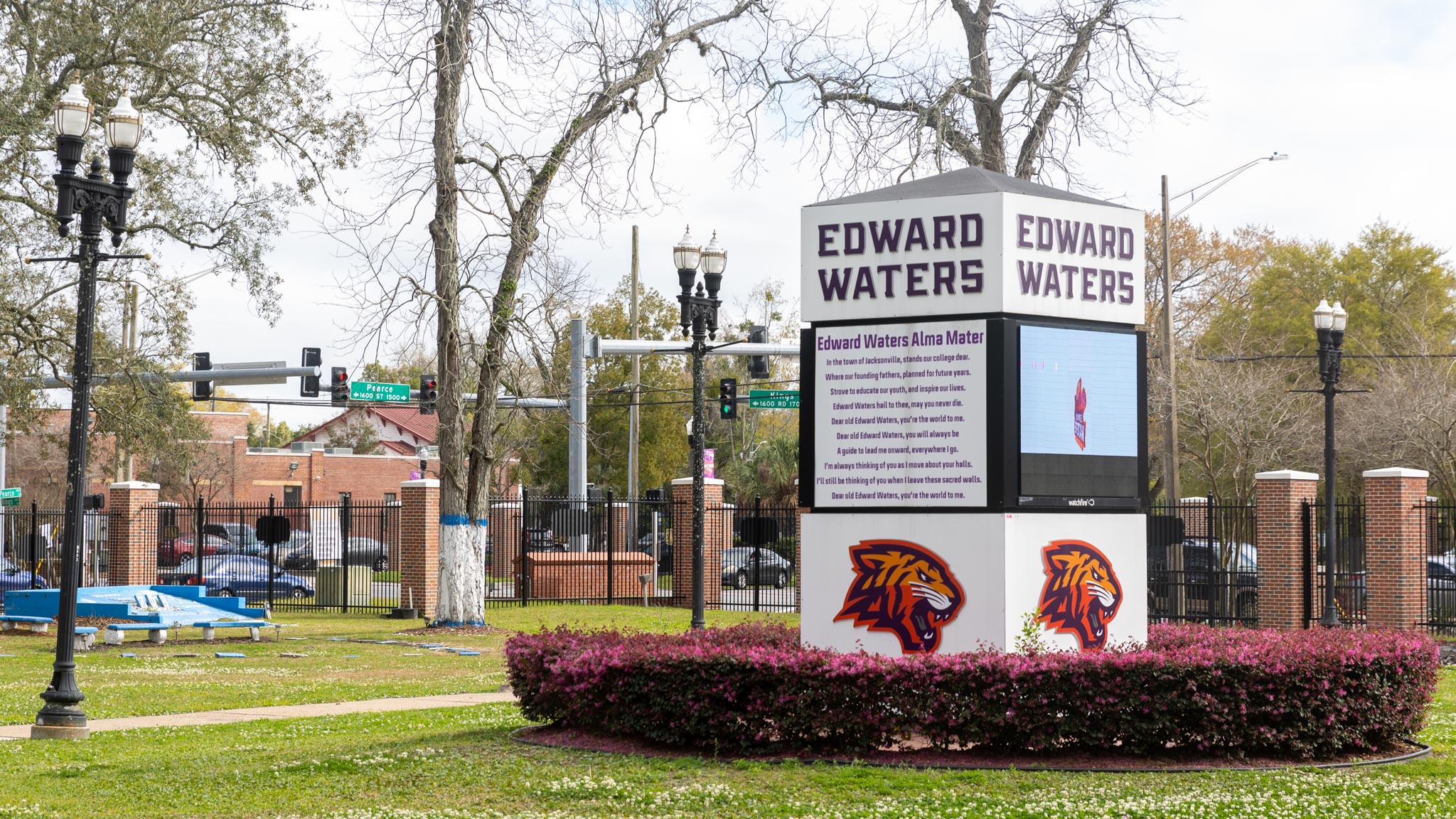On a day known for love, A. Zachary Faison was furious.
The president of Edward Waters University was fuming on Valentine’s Day after a “well-known senior city political leader” (whom he declined to publicly identify) said during a February meeting that Florida’s first historically Black university has not done enough to make itself visible to the Jacksonville business community.
For Faison, it was a final straw.
He fired up X (previously known as Twitter) to bat back at what he sees as stubbornly persistent misconceptions about Jacksonville’s only HBCU.
“EWU has been present in Jacksonville for nearly 160 years. It is the literal birthplace of any and all semblances of higher education in this city and community,” Faison posted, in part, to the social media platform. “Saying that we aren’t ‘present’ or are ‘unknown’ because of a lack of effort or acumen on behalf of the current and/or former leadership is a disingenuous cop-out that patronizingly (reeks) of victim blaming.”
Faison’s since-deleted social media essay received applause from elected officials on both sides of the aisle.
It also illuminated the challenge that EWU, like many historically Black colleges and universities, has in piercing through old perceptions of its quality. For Faison, the outdated impressions are especially irksome as he continues to lead the university through more than a half-decade full of historic firsts.
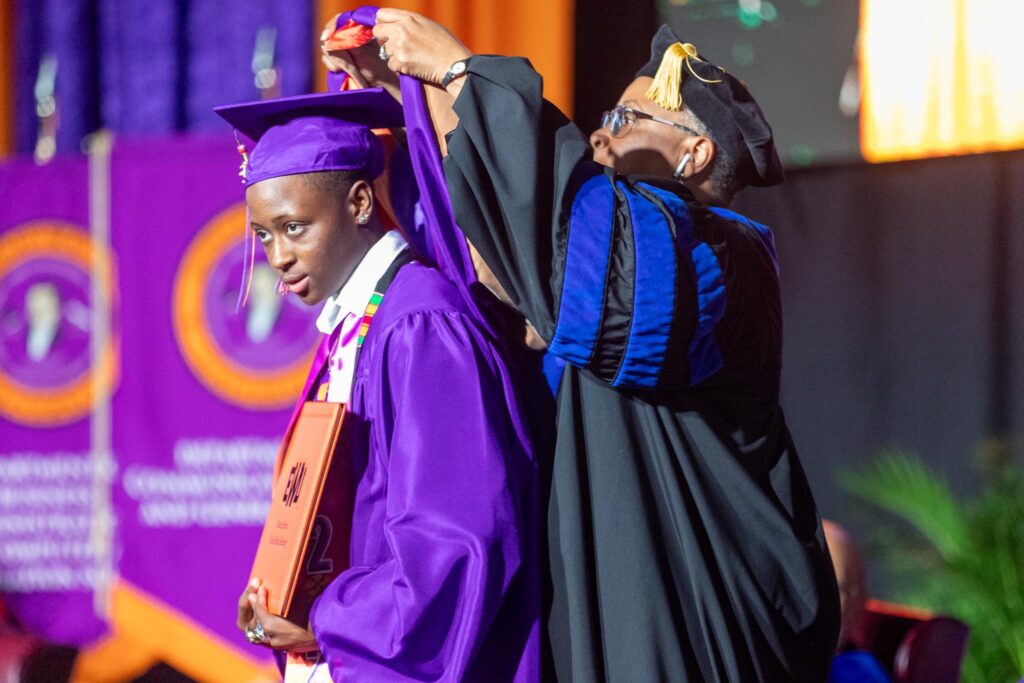
“There is so much politicizing. There is so much misinformation that comes from so many different sources now,” Faison said in an interview with Jacksonville Today. “Part of what it is that our role at HBCUs is to clear the narrative and share truth and accuracy around what we do, who we are and why we do what we do.”
Part of the misunderstanding, he says, is that HBCUs serve a student body, which in the case of Edward Waters, is up to 90% low-income and 85-90% first-generation college students.
“What we’re talking about, for the most part, are students that come in with a myriad of more challenges. Edward Waters, and HBCUs similarly situated to Edward Waters, have done an absolutely remarkable job at taking a demographic of students that are often ignored, or not included in the higher education space by predominantly white institutions… and transmogrify their collegiate experience and send them on a trajectory for future success.”
In the 2021-22 academic year, more than three out of four Edward Waters students (78%) received Pell Grants for low-income students, according to data the university shared with the National Center for Education Statistics. That is considerably higher than at other private universities in the region.
Edward Waters was founded as Brown Theological Institute in Live Oak, Fla., by leaders in the African Methodist Episcopal Church in 1866, a year after the Civil War ended. It moved to Jacksonville in 1892, and its commitment to educating Black students didn’t waver through several name changes — most recently in 2021 to reflect the addition of master’s degrees.
“The transition from Edward Waters College to Edward Waters University under Dr. Faison has been important to the branding and to attracting more students to the university,” says Arthur Adams, co-chair of this year’s Jacksonville Mayor’s Masked Ball, an annual fundraiser that supports Edward Waters and the Washington D.C.-based United Negro College Fund.
“They have seen (an) increase in undergrad enrollment. They have done a good job of looking for opportunities to partner with the community. That chapter is still being written,” says Adams, a senior vice president at CSX Corp.
The perception that Faison is trying to fight isn’t universal in the Jacksonville business community.
CSX, the largest publicly traded company based in Jacksonville, has maintained a relationship with Edward Waters for years. In addition to sponsoring the masked ball, the company’s former Chairman Michael Ward donated $1 million to Edward Waters and sits on its board of trustees.
When former Mayor Lenny Curry’s administration announced the first masked ball in 2022, Adams says his colleagues at the railroad jumped at the opportunity to sponsor the event.
“The value of nurturing our young brown (scholars)?” Adams says. “If you look at many professional careers in this country — engineering, pharmacy, doctors, lawyers — a strong percentage of them have roots at an HBCU.”
EWU alumni include (clockwise from top left) former Jacksonville Sheriff Nat Glover, the late state Sen. Betty Holzendorf, 2024 Duval County Teacher of the Year Gustavo Guzman and The Bethel Church Bishop emeritus Rudolph W. McKissick Sr. | McKissick, Guzman, Glover photos by Will Brown, Jacksonville Today; Holzendorf photo by Mark Foley
Cultivating Black professionals
In Jacksonville, Edward Waters and other HBCUs have been important to cultivating Jacksonville’s professional class, says Regina Newkirk Rucci, who hosts The Business of Race podcast as director of equity with the Jacksonville nonprofit 904Ward.
“As people are looking to diversify their employees, one of the first things we tell them is you need to look at your own network,” Newkirk Rucci says. “HBCU graduates tend to have extremely diverse networks and work in multiple communities, arenas and groups because HBCUs train you to do that.”
For Black college students, HBCUs like Edward Waters continue to be “important sources of economic and social mobility… in furtherance of a more equitable America,” according to recent research from Howard University, the University of Florida and others, which concluded that enrolling in an HBCU increased students’ household income at age 30 by 5% over those who did not attend one.
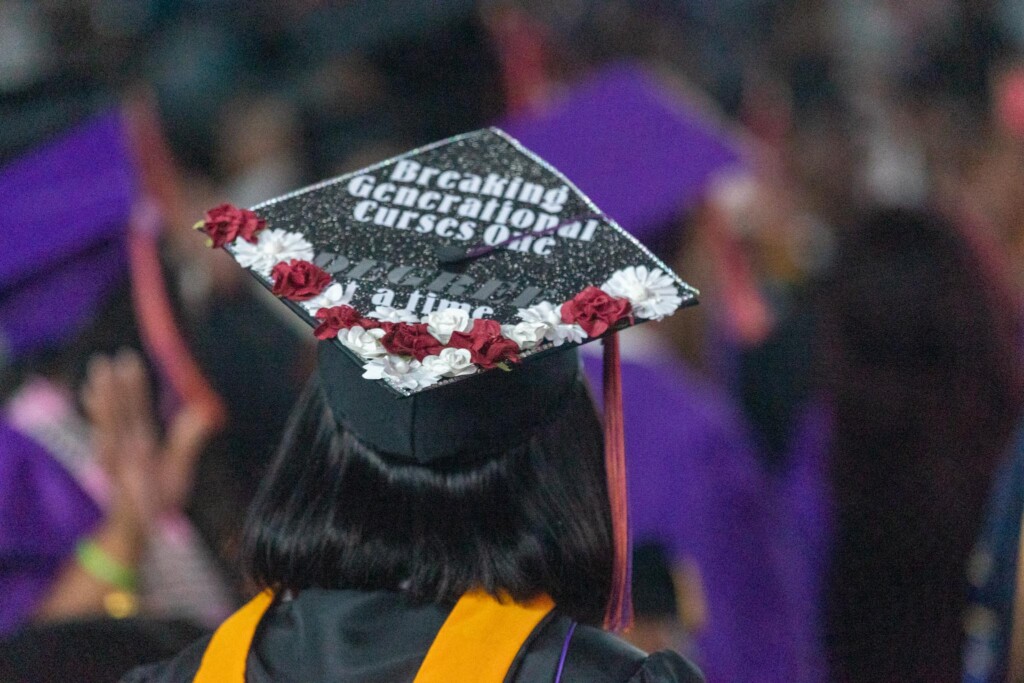
The study also noted that historically Black colleges are often underfunded.
One person who’s working to change that is Jacksonville native Johnnetta Betsch Cole, whom the United Negro College Fund tapped last month to co-chair its $1 billion capital campaign.
The fund’s CEO Michael Lomax served as Edward Waters’ 2023 commencement speaker.
Lomax told the largest graduating class in Edward Waters history that their presence, intellect and lived experience were needed in hospitals, courtrooms and schools, and he praised the university’s growth and the success of the Mayor’s Masked Ball as a fundraising tool.
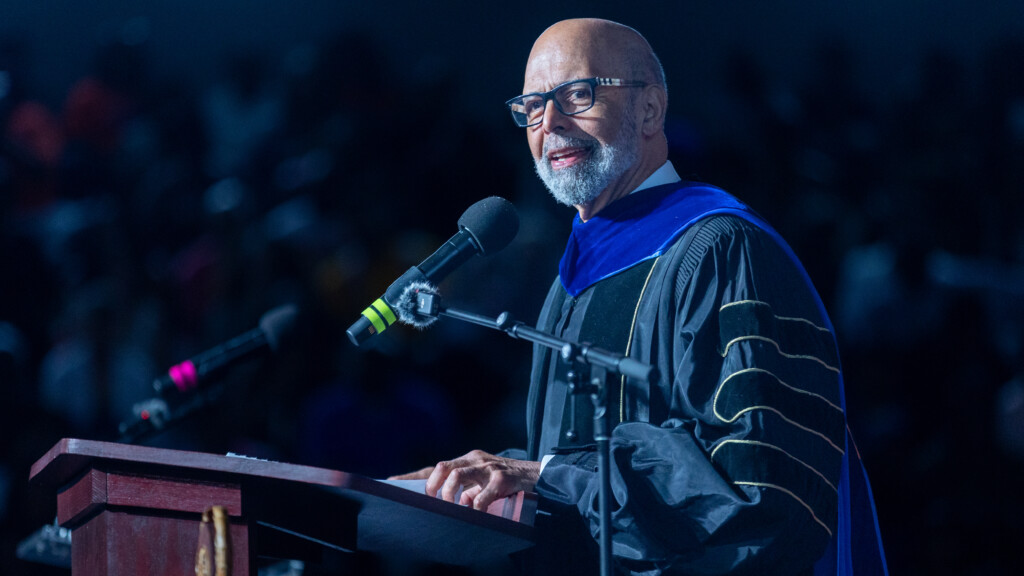
Lomax told Jacksonville Today at that time that he is seeing greater recognition of the caliber of HBCU students and faculty’s ability to prepare them for the workplace.
“They are still competing in an environment where they are not going to be compensated at the same level as their white peers,” Lomax said. “We still have discrimination. It is still an obstacle. But, these are tough, resilient, persistent, determined and ambitious graduates. And, they’re going to sharp-elbow their way into equality.”
Soon-to-be Edward Waters graduate Patricia Johnson, the school’s Student Government Association president, says, “The opportunity to come to school has changed my life. I have made relationships with people who have pushed me to be a better person, better student and better woman.”
Johnson, a communications major from St. Petersburg, says her roots in the AME Church, as well as a desire for a smaller college setting, drew her to Edward Waters. (Its student body this academic year numbers around 1,200, according to Faison.)
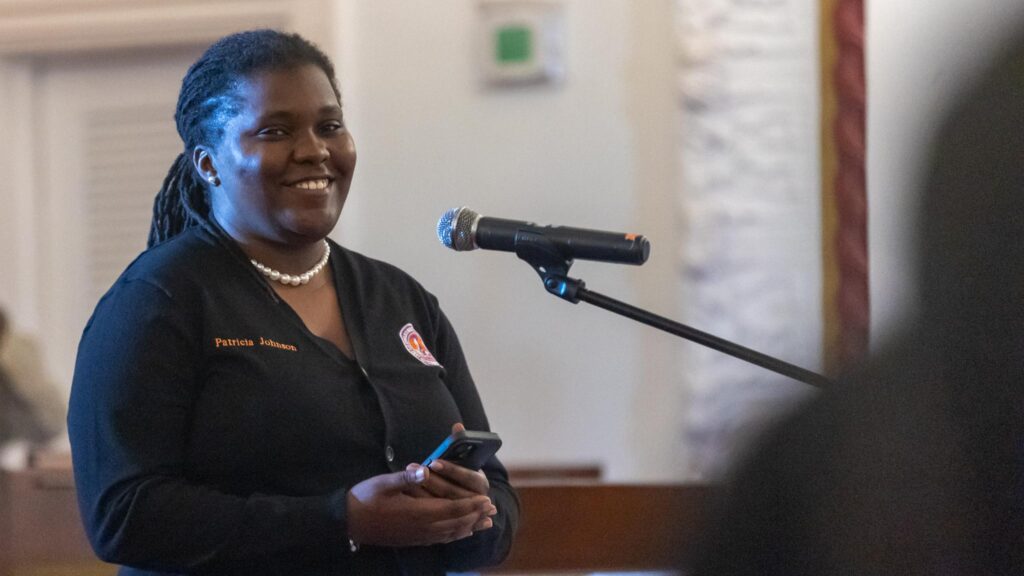
“It’s given me a space and a chance to grow when I didn’t have that opportunity,” Johnson says.
On Feb. 28, Johnson was among the students and community members who packed the Milne Auditorium for a lecture by national best-selling author and activist Ta-Nehisi Coates — a visit that was part of Faison’s President’s Distinguished Speaker Series titled “Stay Woke.”
Coates told the crowd he felt just as at home behind the Edward Waters lectern as he did speaking at a Rosenwald School in Berlin, Maryland, and at Abyssinian Baptist Church in Harlem last month. Historically Black colleges, Coates said during his remarks, were not only vital to his own writing and scholarship but to Black communities.
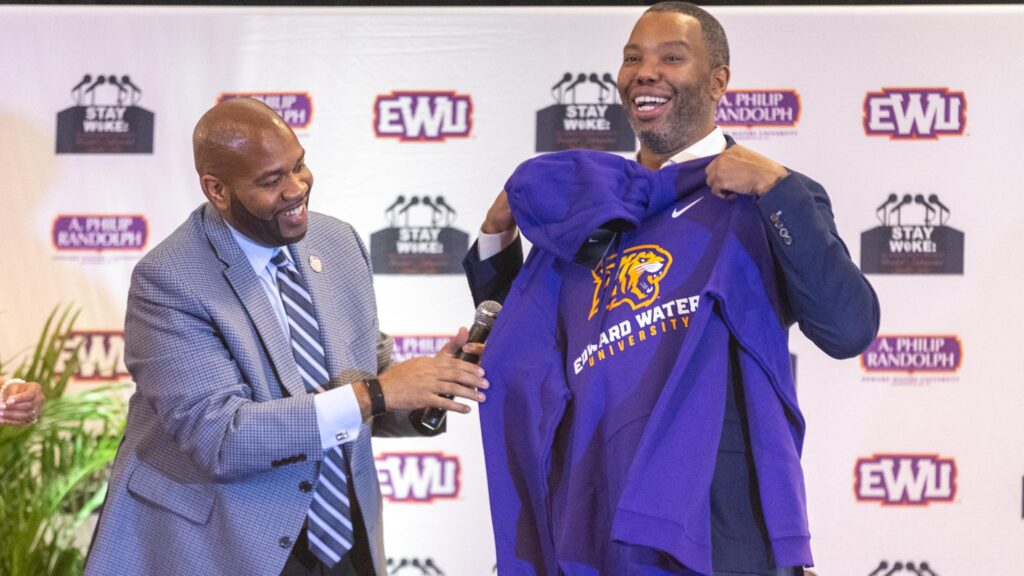
As Coates wrapped up for the evening, sophomore Kimberly Holland was waiting in line to ask him a question of her own.
The evening was getting late, but Faison knew how important it was to her to query Coates, a fellow Baltimore native who attended Howard University, an HBCU in Washington, D.C. Faison interjected to include Holland in the conversation.
She rose from her pew, smiled and fired: “What advice do you have for developing a unique voice and effectively addressing complex and sensitive topics?”
Afterward, Holland told Jacksonville Today that Edward Waters has helped her bloom.
“That space is why I chose to attend a HBCU, to have an undergraduate experience geared toward students like me and have people who care about us like family,” she says.
Holland knew she wanted to attend a HBCU and leaned toward Jackson State University until she was recruited to the Edward Waters’ Honors College, which is an increasingly large part of the university’s recruitment strategy.
The other prong is sports. In 2021, Edward Waters moved from the National Association of Intercollegiate Athletics to the National Collegiate Athletic Association, where it returned after many decades to the Southern Intercollegiate Athletic Conference, home to athletic programs at smaller HBCUs since 1913.
“We are now on the same platform as some of the notable HBCUs like Tuskegee, Clark-Atlanta, Fort Valley State, our friendly rivals down at Savannah State,” Faison says. “What this has done for us is really create a synergy that did not exist formerly.”
On Feb. 23, the conference announced it would bring its men’s volleyball championship to Jacksonville this spring, and Edward Waters hosted its first-ever women’s tennis match last week.
Under Faison, the school has also strengthened its relationship with The Players Championship, and its athletic achievements have provided a national platform for its student athletes.
For one, recent MBA graduate and Edward Waters basketball player La’Quanza Glover signed a name, image and likeness deal in 2021 with Jacksonville-based logistics company Global, a historic endorsement that caught the attention of the Women’s Sports Foundation in 2022 as it marked the 50th anniversary of the passage of federal Title IX laws.
Jesus Garay, the founder of Global, grew up in Durkeeville, less than two miles from campus, and he mentors EWU students and recent graduates.
“To see someone who looks like them, thinks like them and acts like them is big for them,” Garay says of the deal with Glover. "Seeing someone who looks like them who operates out of strength not weakness allows them to re-imagine what their future looks like.”
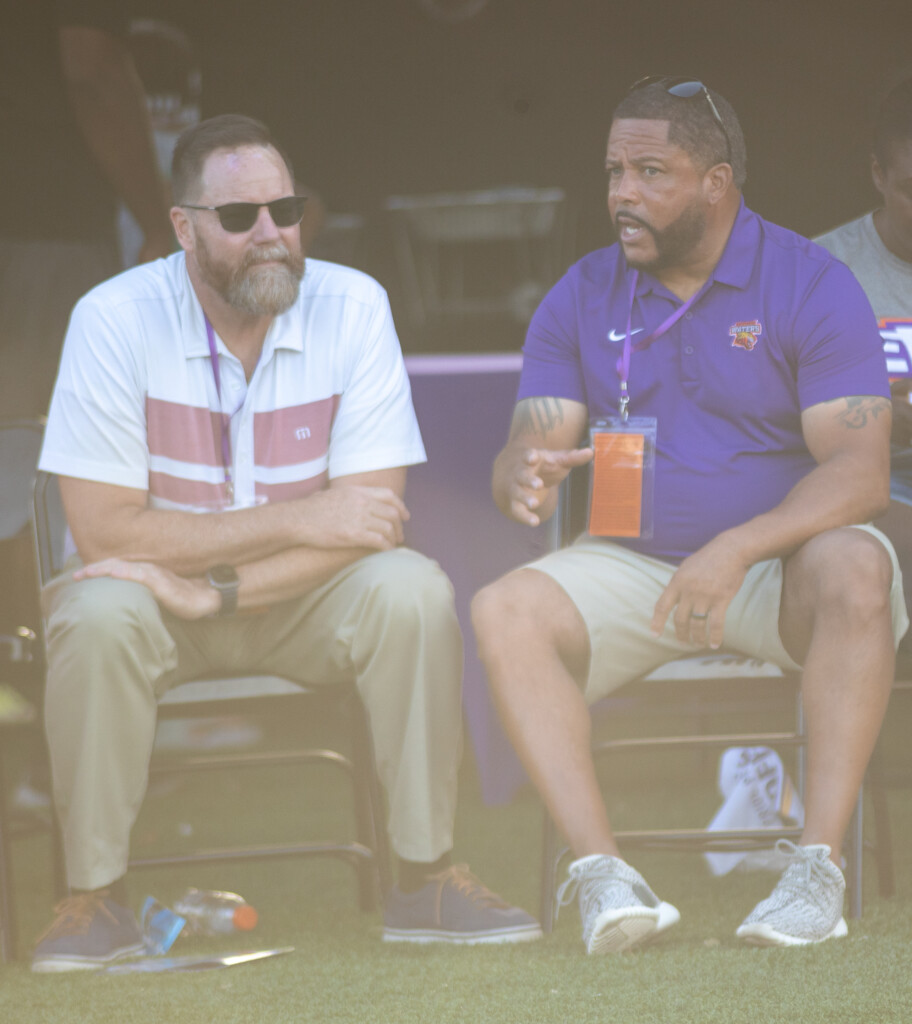
Garay says he extends grace but does not accept excuses when it comes to businesses connecting with EWU.
“When you walk down near Edward Waters, there is an explosion of greatness, of Black excellence,” Garay says. “Usually, you don’t find that many happy Black people in one place.”
Last fall, Shara Self was one of those people. Self, a cheerleader at Edward Waters two decades ago, returned to campus in September to watch the Big Cat Classic between her alma mater and Florida Memorial.
“Edward Waters is an HBCU to be reckoned with,” said Self, a 2006 graduate whose son, Desmond, is now a freshman center on the football team. “People look at us as being a small institution, and assuming that we don’t have amazing talents and amazing things to offer.”
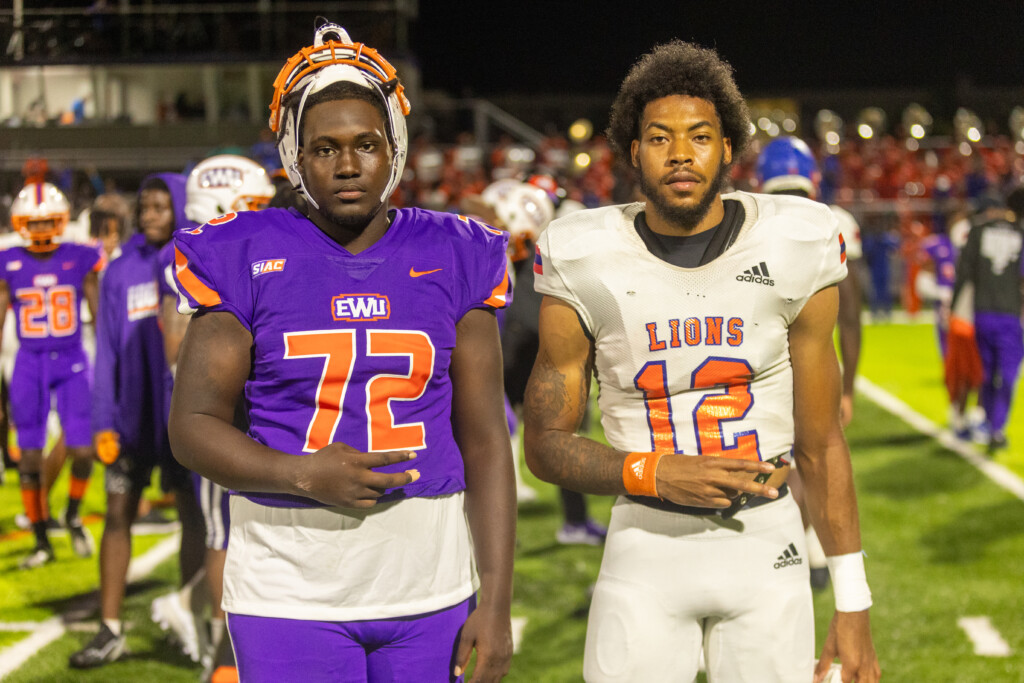
Desmond Self is also a biology major.
“This is something that he wanted to do (and was) doing his own research,” Self says. “Edward Waters was high on his list because of the different choices they have to offer.”
In 2022, Edward Waters announced a partnership with the University of Florida that allows select students in EWU’s biological sciences program to join the accelerated nursing program at UF Health Jacksonville campus.
This academic year, the university began enrolling students in new master’s programs in cybersecurity and public administration, two of 16 degree programs the school now offers.
“We made some tough decisions,” Faison says. “We sunset some academic programs – it seemed counterintuitive to some folks at the time. But, we were wanting to make sure we positioned ourselves for the future…That led to us being able to re-invest in some programs and then add new programs that have really undergirded our growth.”
Looking forward
Like Edward Waters, HBCUs across the country are growing. After years of consistent declines, the National Center for Education Statistics notes total enrollment at HBCUs grew 3.6% to 289,426 students between 2020 and 2022. Enrollment at private HBCUs, like Edward Waters, grew by 5.3% over that period.
More students are choosing Edward Waters amidst a statewide and national education climate that Faison and Cole – the president emerita at both Spellman College and Bennett College – consider frosty toward academia and Black Americans.
In August, following a racist mass shooting at a Dollar General store less than a mile from campus, Faison told Jacksonville Today and other reporters that the rhetoric emanating from some elected officials “makes fertile ground for these kinds of abhorrent attacks against African Americans to take place.”
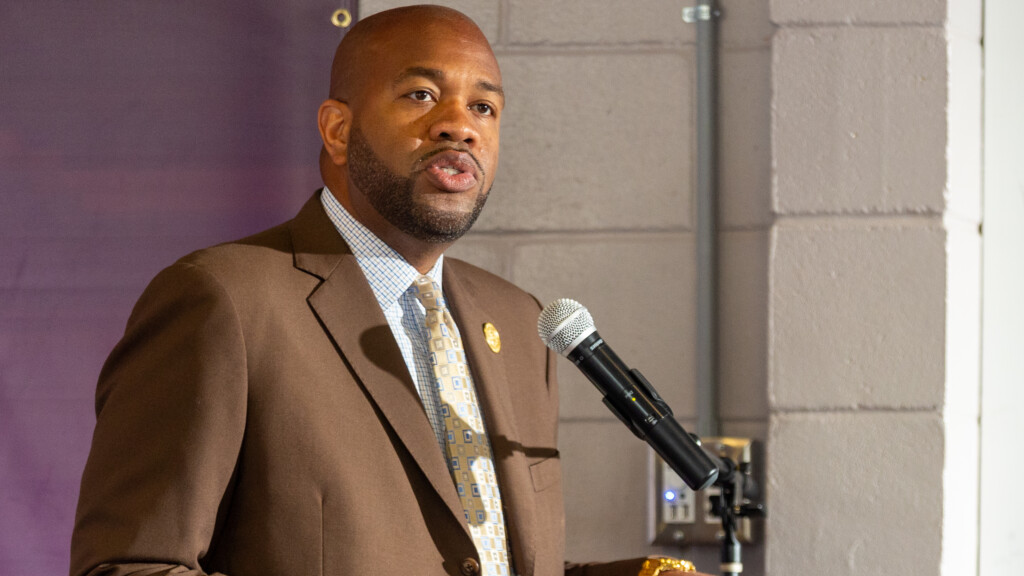
Edward Waters faculty and students were spared in the August shooting that killed three people, after a security guard engaged the shooter and he was turned away from campus.
In last week's interview with Jacksonville Today, Faison said he wanted to work at a private HBCU in order to maintain independence from Southern legislatures. Administrators across the country are on alert over a Mississippi bill that would close three of that state’s eight public universities. The bill does not single out its three public HBCUs — Jackson State, Alcorn State and Mississippi Valley State – but the national HBCU community is abuzz with fear they’ll be targets for closure this decade.
“We’ve always been at the forefront as a leader with regard to providing opportunities, particularly for African Americans, and in setting the narrative, setting the conversation about what it means for African Americans and other communities of color around this country to have equitable opportunities,” Faison says.
Florida is led by Gov. Ron DeSantis, who kicked off his second term by proclaiming “Florida is where woke goes to die.”
When Faison hears “woke,” he thinks of its initial meaning, as an advisory for Black people to remain vigilant in a world that wishes them harm. He says it’s liberating to work in an academic environment that stands for freedom, justice, equity and truth.
Edward Waters expects this year's graduating class to match last year’s commencement record.
“You’re talking about potential Black business owners, entrepreneurs. You’re talking about African Americans that now can go into business and industry in many of the businesses and corporations around this city,” Faison says of the school’s MBA program. “The potential impact is absolutely phenomenal."



